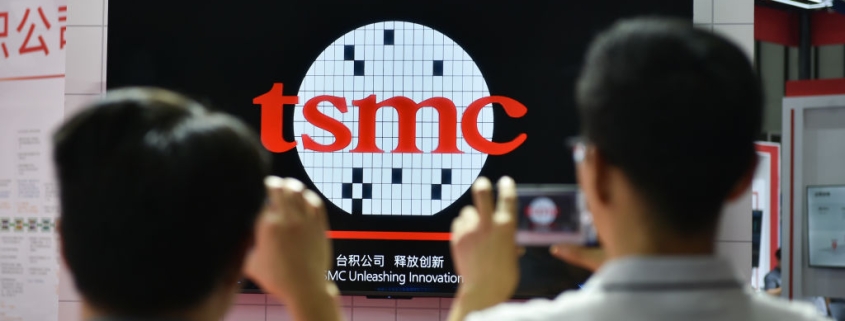TSMC’s $100 billion bet: strengthening ties or weakening Taiwan’s leverage?
Taiwanese chipmaking giant TSMC’s plan to build a plant in the United States looks like a move made at the behest of local officials to solidify US support for Taiwan.
However, it may eventually lessen commitment from Washington since it is a step toward US domestic production of semiconductors, reducing reliance on Taiwanese supply. The US’s friends, particularly Japan and South Korea, may make similar moves as they have much the same incentive as Taiwan to strengthen relations with Washington.
For Taiwan, semiconductors have long been more than an economic asset; they have been a strategic shield. The island’s role as the world’s most advanced chip producer has created an unspoken security guarantee, as its survival matters to the global economy. But as TSMC shifts production to the US, that shield may begin to weaken.
Taiwanese officials understand that economic entanglement with the US strengthens political ties. TSMC’s US$100 billion investment is an effort to deepen those ties and ensure that Taiwan remains indispensable to Washington. The goal is clear: by embedding Taiwan into the US economy, its security will become a priority.
Yet shifting production overseas brings unintended consequences. The more the US secures its own chip supply, the less dependent it becomes on Taiwan. Over time, Washington may feel less compelled to maintain a strong military commitment to the island. The very move intended to guarantee US support could ultimately make Taiwan more expendable.
The transactional nature of US foreign policy under President Donald Trump highlights the risks of Taiwan’s strategy. The US has shown that its commitments are not always permanent. When allies are no longer seen as essential, support can fade. Ukraine has witnessed the limits of US backing.
For the US, TSMC’s investment aligns perfectly with economic nationalism and the push for supply chain security. Bringing semiconductor production home reduces the risks that geopolitical instability presents. It also fits neatly into the broader US-China rivalry, as Washington seeks to curb Beijing’s access to advanced chip technology. But in securing its own position, the US may inadvertently erode Taiwan’s leverage.
Taiwan is not alone in using economic diplomacy to bolster security ties. Japan and South Korea are watching closely, knowing that integrating their industries with the US strengthens their alliances. Both nations are making their own semiconductor investments in the US, mirroring Taiwan’s strategy.
For these allies, the calculation is the same: a deeper economic footprint in the US may translate into stronger security commitments, but the longer-term consequences remain uncertain. If Washington’s dependence on Asian chipmakers diminishes, will its military presence in the region follow suit?
Beijing sees TSMC’s move as both a challenge and an opportunity. On one hand, it accelerates China’s race to achieve semiconductor self-sufficiency. China has already invested billions in its domestic chip industry, knowing that reliance on foreign technology is a vulnerability. If the US and its allies shift production away from Taiwan, China may step up its technological ambitions, or act before Taiwan’s strategic value declines further.
On the other hand, any reduction in reliance on Taiwanese chips makes a US military intervention in a Taiwan conflict less certain. The more the US secures its semiconductor supply, the less important Taiwan becomes to its strategic interests. This shift could embolden China to take a more aggressive stance in the region.
TSMC’s expansion into the US reflects Taiwan’s effort to safeguard its future by deepening ties with its most powerful ally. But this strategy carries risks. Taiwan’s greatest asset, its dominance in semiconductor manufacturing, has made it a linchpin of global stability. As that capability is distributed across multiple locations, Taiwan’s strategic leverage may erode.
Taiwan is making itself indispensable to the US economy in the hope that this translates into an ironclad security commitment. But history has shown that alliances built on economic necessity are not always stronger. As the US moves toward greater self-sufficiency, Taiwan must navigate an increasingly complex geopolitical landscape where economic influence alone may not be enough to ensure its security.
The world is shifting, and Taiwan’s bet on economic diplomacy is a high-stakes gamble. The outcome will shape not just Taiwan’s future, but the broader balance of power in the Indo-Pacific.



